After bomb threats rattled HBCU, frustration with funding and no FBI word on arrests
North Carolina Central University officials have noticed a change in students since a bomb threat in January at the historically Black university: more depression, anxiety and distress.
"With the recent bomb threats, we saw interruptions to how students felt safe and secure on our campus," said Charnequa Kennedy, director of the public liberal arts institution’s counseling center.
NCCU received the bomb threat at about 5:30 p.m. on Jan. 4. The campus went into lockdown. Students were relocated. The call to the university’s Durham campus was among at least half a dozen threats aimed at historically Black colleges and universities that day.
What is an HBCU? Everything you need to know about historically Black colleges or universities
By the end of Black History Month in February, bomb threats at HBCUs had swelled to at least 57 – leaving administrators and students on edge and rekindling a history of violence aimed at Black students seeking educational advancement.
The FBI said in March that it was investigating six subjects in the bomb threat cases. But no arrests were made and the menacing behavior continued into the next school year.
Vice President Kamala Harris pledged to schools in March, as the White House launched a program for HBCUs whose learning environments were disrupted by threats, that the intimidation would not stand.
Harris, a graduate of Howard University – a private HBCU in Washington, D.C. – said the Biden administration would “do everything in our power” to protect communities from hateful acts.
Seven months later, a handful of schools have been awarded funds, but others have expressed frustration with the federal grant application processes and limitations on using awarded funds. Many are worried about the lack of arrests and communication from federal authorities.
“If we allow people to feel like they can continue to do this without being held accountable, they will always be able to be disruptive,” said Walter Kimbrough, a member of President Joe Biden’s HBCU council and former president of Dillard University. “We’re the only group where there have been threats, and nobody has been caught.”
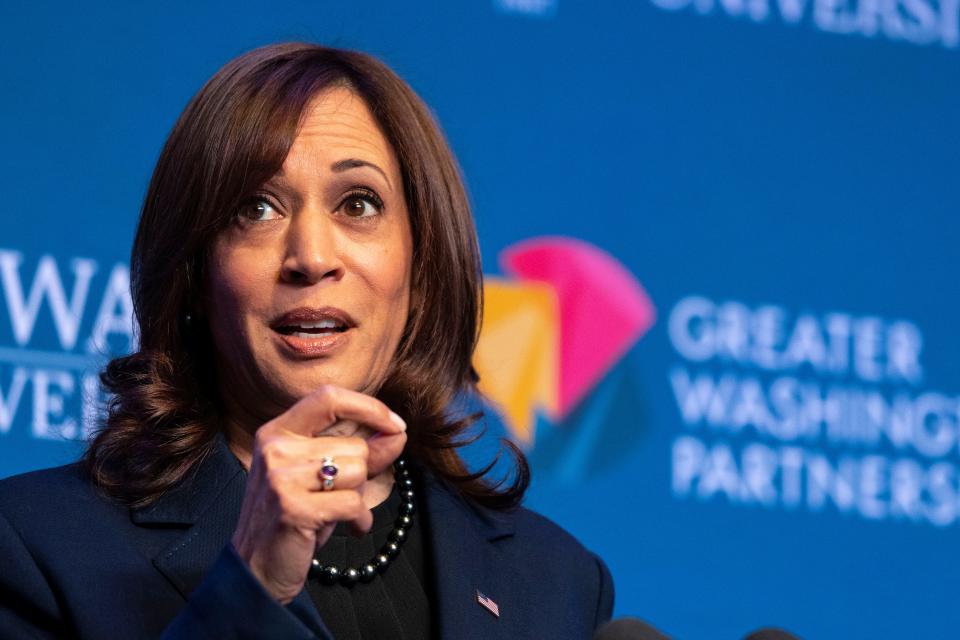
The alarming incidents at HBCUs happen as many of the schools see growth in enrollment, following social justice protests in 2020. Bomb threats at the schools, which opened prior to the end of legal segregation in 1964, have slowed since February, however, Howard University received two more in August, marking eight this year. Howard has received the most threats of all the schools.
EDUCATION: How Black Latinos found a future in an Alabama HBCU after slavery
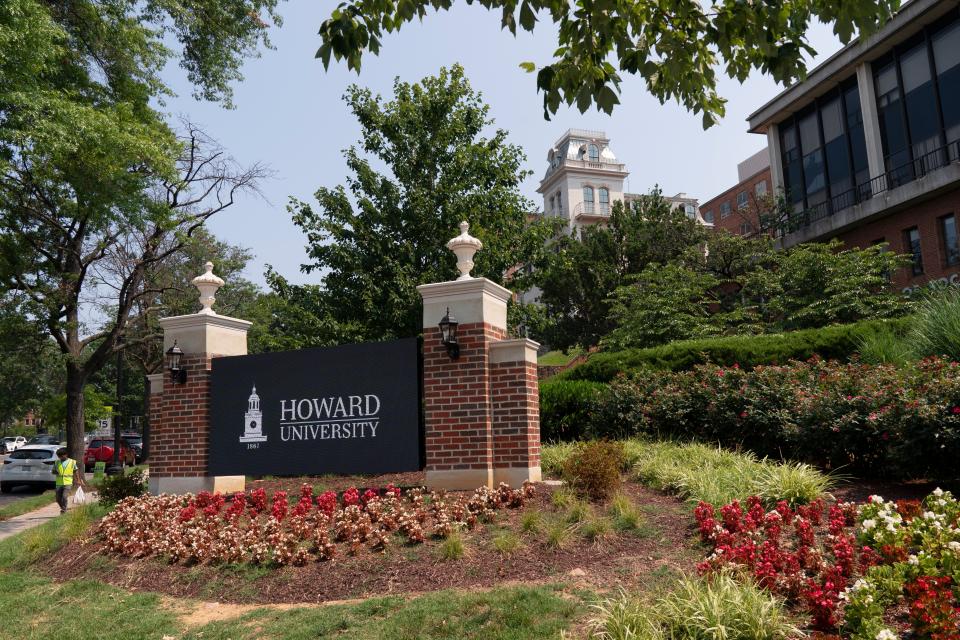
HBCUs already ‘a fragile environment’
School administrators said the bomb threats make it harder for their campuses to resume operations after the pandemic.
“Coming out of COVID straight into this, I think it's already a fragile environment. And so, I think it was pretty jarring to students,” said Fisk University Vice President for Institutional Advancement Jens Frederiksen. “It's something that we prepare for, something you hope you never have to deal with.”
The White House Initiative on Historically Black Colleges and Universities partnered with the Department of Homeland Security in June and July to provide counterterrorism training to universities that focused on bomb threats. Dietra Trent, executive director of the White House initiative, said more than 60 HBCUs participated in the six trainings, which she said were open to campus law enforcement and public safety officers.
“We have worked with our partners across the DOJ and FBI and we have made resources available to our presidents that are readily at their disposal,” Trent said.
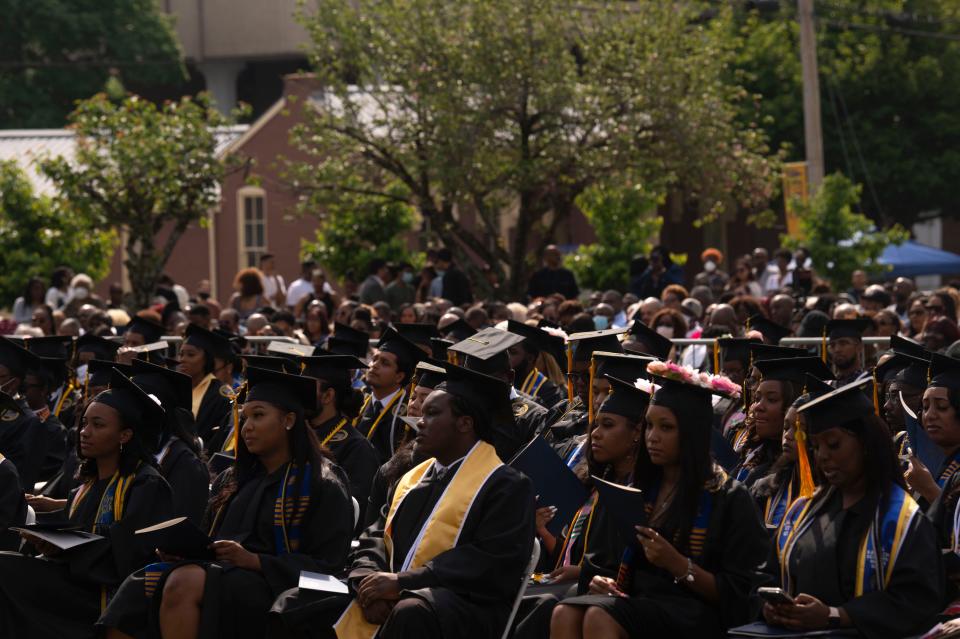
Law enforcement agencies last briefed HBCUs on the threats on Sept. 9. The FBI said in a statement after the call that it would “not tolerate anyone trying to instill fear in any community, especially one that has experienced violence and threats of violence historically,” and promised to continue to pursue the perpetrators of the threats with vigor.
HBCU advocates said the FBI shared few new details in the call, which they said was the first and only one that had taken place this school year. The agency declined to provide further comment to USA TODAY.
Lodriguez Murray, senior vice president of public policy and government affairs at the United Negro College Fund, said it was mindboggling that HBCUs could be threatened and that no perpetrators have been arrested.
“While we appreciate the efforts of the Department of Justice and the FBI, any effort short of prosecution is just not fulfilling for us,” Murray said.
The lack of communication from the law enforcement agency has drawn the ire of schools, advocates and lawmakers from both political parties.
“There's a premium on communication, and letting folks know what's going on even if there's not been any material development,” said David Sheppard, chief legal officer and chief of staff at the Thurgood Marshall College Fund.
A bipartisan group of legislators in the House and Senate, including Sen. Chris Coons, D-Del., pushed the DOJ and FBI in a letter this month to provide updates with greater frequency. The lawmakers stressed the “ongoing nature of these threats may embolden others” to commit harmful acts against the schools.
“I recognize that the FBI has a lot on their plate, and there's a lot of threats in our country,” Coons, a co-chair of the Congressional Bipartisan HBCU Caucus told USA TODAY, “but because of the historic nature of these – because I think they are rooted in a national legacy of church bombings, of church burnings of targeted threats and assaults against Black Americans – I want to continue to elevate this until we begin to see resolution until we see arrests made, charges brought and cases moving forward.”
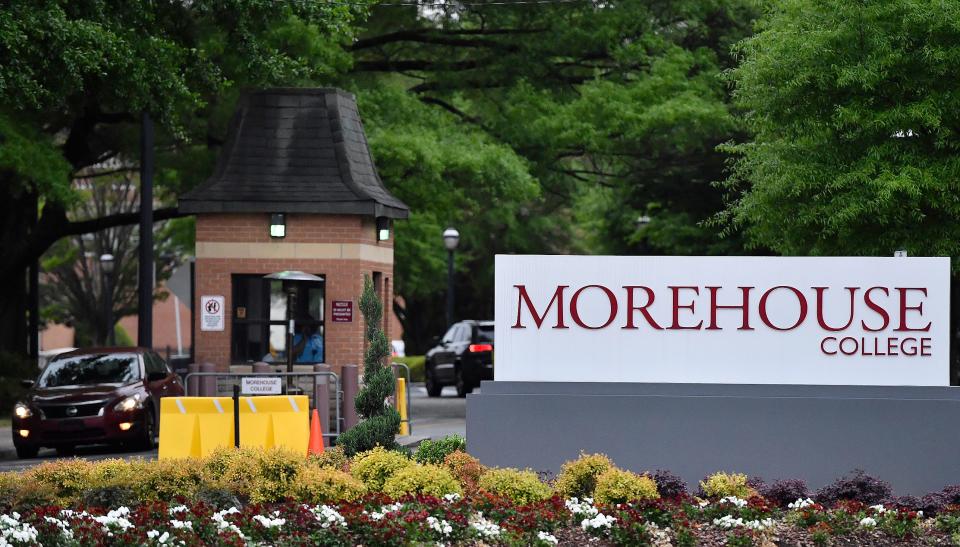
Education Department tries to fill large need with grants
The Department of Education said in March that it was making HBCUs that have received threats eligible for Project SERV grants, a preexisting pot of funds that schools can apply for to respond to a violent or traumatic event. Six of the seven schools that applied have received grants so far, the Education Department
Almost all of the schools that have received the money – the Southern University Law Center, Tougaloo College, Coppin State University, Fisk University, and North Carolina Central University – said they were largely happy with the grant program. Fayetteville State University also received a grant.
The University of the District of Columbia, Xavier University of Louisiana, Alabama Agricultural and Mechanical University and Langston University did not apply for the grant, the schools told USA TODAY.
Many of the schools didn’t say why they hadn’t applied, but Rep. Alma Adams, co-chair and founder of the Congressional Bipartisan HBCU Caucus, said universities have told her that the grant’s criteria were stringent and unclear.
“Some of the schools weren’t sure it would really help them do things they really needed to do in terms of maybe long-term improvements and so forth,” said Adams, D-N.C.
Smaller schools, she said, might not have grant coordinators who have much experience filing federal grants.
Kimbrough, a longtime HBCU administrator, said some schools felt “a level of insensitivity” about the application process, and felt they should not have to prove that the widely known bomb threats were disruptive.
North Carolina Agricultural and Technical State University reached out to the Department of Education soon after the campus received a bomb threat in February, according to Jermaine Cherry, the university's chief of police.
An Education Department official discouraged him from applying for the grant, Cherry said. The grant, he said, was intended to bring schools back into regular order.
After publication, the Education Department reached out to USA TODAY to say it has not dissuaded prospective grant candidates, adding that the DOE welcomes applications and can provide technical assistance if needed.
At North Carolina A&T, the police department beefed up the presence of officers, looked out for suspicious items, and cleared out rooms after the bomb threat.
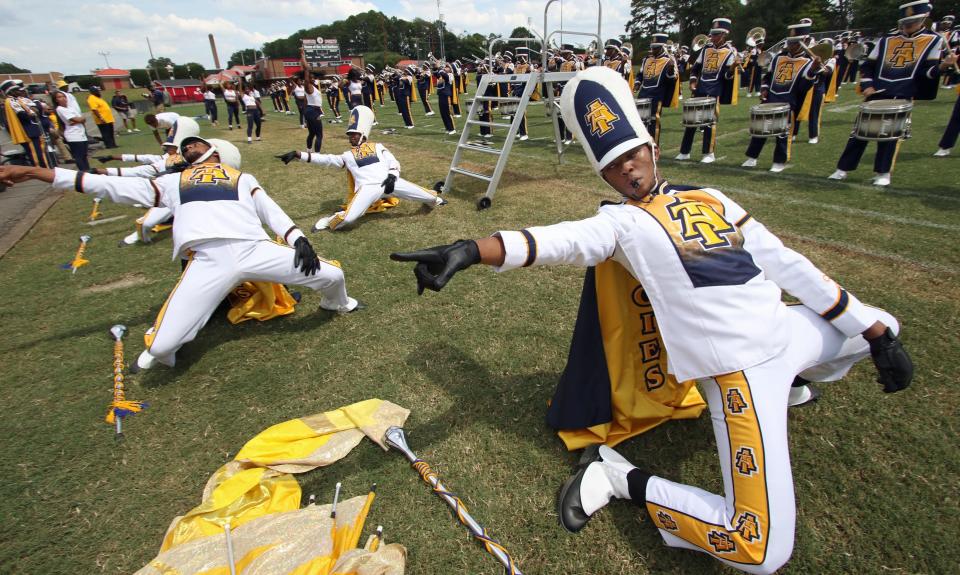
Other schools had to shelter in place and bring in additional resources at a high financial cost. To his understanding, Cherry said, the Project SERV grant could have offset those costs. He would have liked to use the funding to bolster campus security.
Trent, executive director of the White House initiative on HBCUs, said Project SERV money is meant to help restore campuses to a condition where students and faculty feel safe. She said the Education Department is walking schools through the process, and schools can reach out to her if they need additional help.
Trent said the Education Department is aiming to award grants to every impacted school that applies. “We have rejected no applications, and we don't intend to reject any applications,” she said.
Schools eye campus security upgrades
Spelman College in Atlanta said it will apply for a Project SERV grant by the end of the year. Dillard in New Orleans said the university would also apply for the grant, hoping it would fund increased security measures around campus and additional police officers.
After a February bomb threat, Dillard University shut down and cleared its campus and students were shuttled to a safe location.
Dr. Roland Bullard, the university's vice president of student success, described the students as concerned but resilient since the threat had happened at other schools.
"They went back with a level of caution, but they did get back to their work," he said. "They wanted to know that we were prepared and that was something that we were able to assure them of."
He said it’s important that law enforcement officials prioritize the security of HBCU students.
"As long as they pay attention to the fact that our HBCUs need to be secure," he said, "I think we'll be OK."
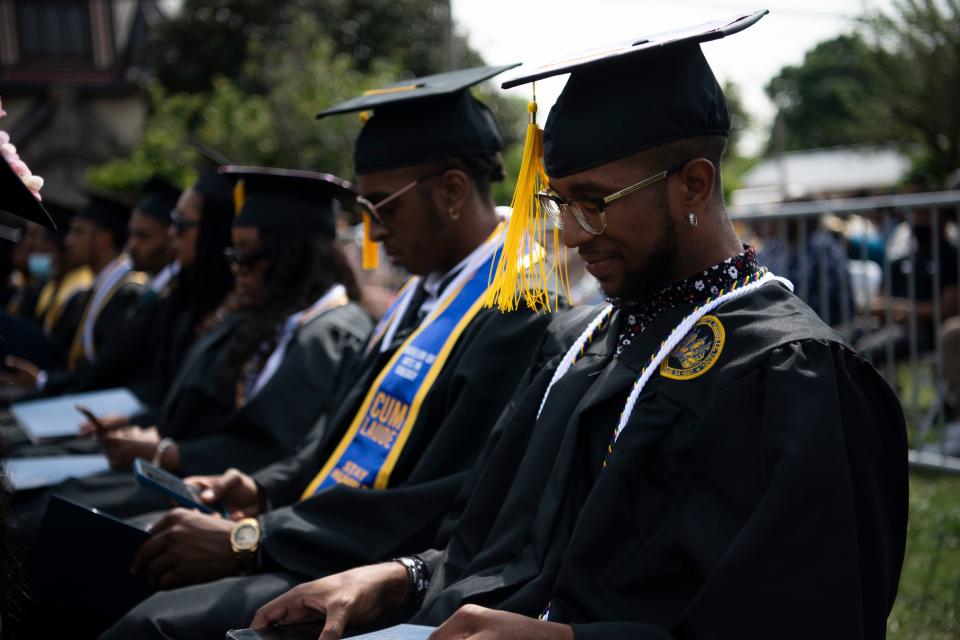
Back in Durham, North Carolina Central University received nearly $213,000 in Project SERV money to extend their counseling services to include wrap-around care. The university also added campus safety staffing.
Tougaloo College in Mississippi received more than $400,000 in Project SERV money to add police officers and give faculty mental health breaks.
Southern University Law Center said it received more than $130,000 in federal dollars after two women with Ph.D.’s who are not grant writers – Eleanor Collins and Mary Johnson – worked outside of their regular hours to file the school’s application.
Johnson said that several times they sent the application, and the Education Department requested more information, which meant they had to conduct additional research.
“It is time-consuming. That's one of the reasons we came early and we stayed late,” Johnson said. “But it was worth it.”
The public law school in Baton Rouge hired three trauma counselors, the women said, and has held monthly programming that includes sessions on the history of violence toward HBCUs.
Fisk University, a private HBCU in Nashville, Tennessee, that received a more than $60,000 grant, said it put the money toward recovery efforts. It also hopes to set up strategic fencing around the campus.
Coppin State University President Anthony Jenkins said the university is looking at ways it can use the more than $130,000 it received to boost campus security, including adding additional cameras and mobile phone software that students can use to report threats. Jenkins said the public HBCU in Baltimore aims to put the safety features in place by next summer.
HBCUs have received few updates on the threats, but he said presidents continue to converse with each other about how they can keep their institutions safe.
“I think that as the situation kind of died down, interest died down in it for those folks who are not at the HBCUs,” Jenkins said. “But it never died down for us.”
Chambers is a White House correspondent for USA TODAY. Cusaac-Smith is a racial history reporter for USA TODAY.
This article originally appeared on USA TODAY: HBCU bomb threats drive frustration. No FBI word on arrests

